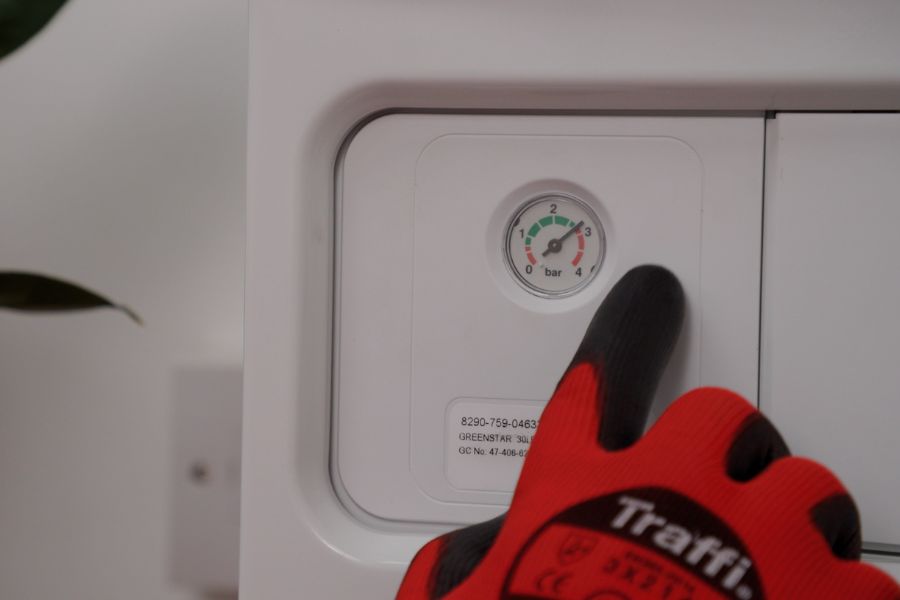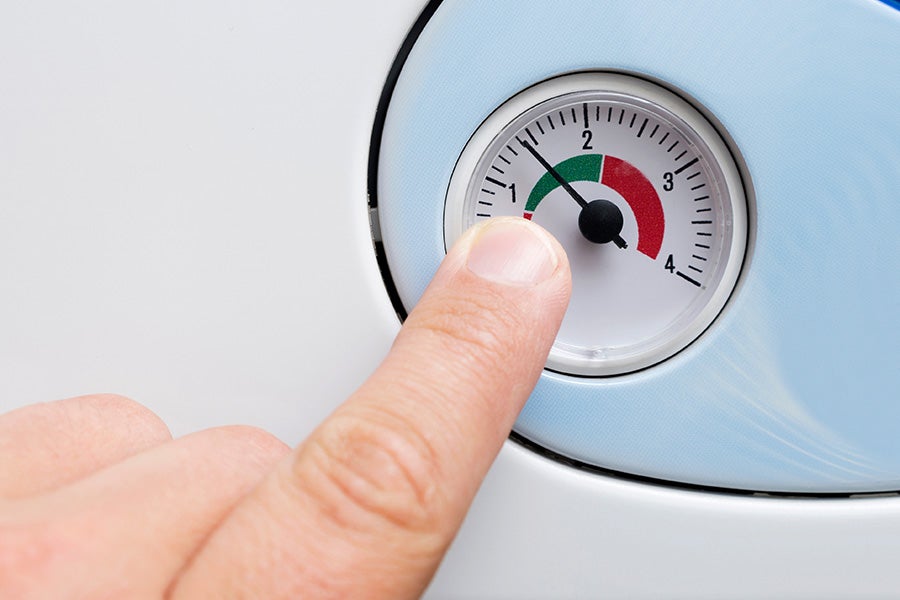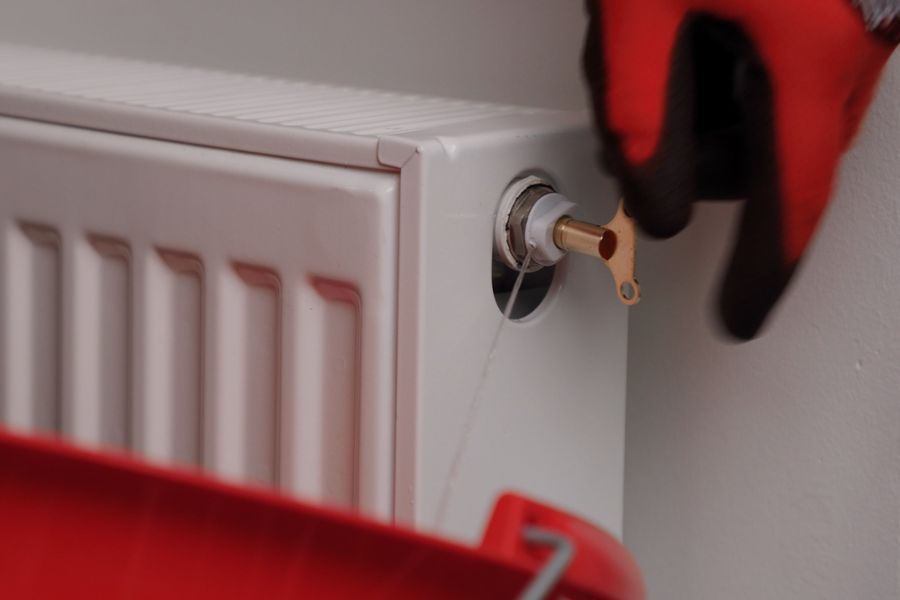Boiler how-to
What to do when your boiler pressure is too high
02 Jul 2025 • 3 minutes


Once your boiler begins to heat water, the heated water expands and causes the pressure gauge to increase.
With an expansion vessel, boilers are usually able to control these quick leaps in pressure, so you don’t need to worry if the boiler shows a higher pressure than you expected when you are both using the central heating and running hot water.
However, if you find that your boiler pressure is too high, this guide will explain how to reduce boiler pressure yourself and lower it to the correct setting.

Your boiler’s pressure is usually displayed on the built-in pressure gauge. It should read around the 1 bar mark when you’re not running any hot water and the heating isn’t turned on.
When the heating is turned on, your boiler pressure should be between 1.5 and 2 bars. Most boilers will highlight this area in green on the pressure gauge, clearly showing you that the pressure setting is correct.
If the boiler reading is outside these numbers, this indicates that the boiler pressure is either too low or too high.
When the heating is turned on, here’s what you need to know about your boiler pressure:
|
0-1 bars |
Boiler pressure too low |
|
1.5-2 bars |
Boiler pressure correct |
|
2.5+ bars |
Boiler pressure too high |
Aside from the pressure gauge, there are several symptoms that can indicate your boiler pressure is too high, such as:
If your boiler pressure is too high, some common reasons behind it include:
Reducing boiler pressure can be as easy as bleeding your radiators and letting a little water out of your heating system. One of our Home Experts, Chris, explains how to reduce high boiler pressure safely in the video below. Or you can follow the full step-by-step guide.

If you’ve tried the fixes above and your boiler pressure is still too high, or the issue keeps coming back, it might be time to get a professional assessment. Sometimes, the problem isn’t something you can easily spot or sort on your own.
For example, if the pressure relief valve is faulty, it may need to be replaced by a qualified engineer. Similarly, a faulty expansion vessel can cause pressure fluctuations and might need to be recharged or replaced.
In cases like these, getting a Gas Safe Registered engineer to take a proper look at your system will identify any underlying issues and recommend the best solution. It’s a great way to get peace of mind and make sure your boiler is running safely and efficiently. Plus, it can help you avoid bigger (and more expensive!) problems down the line.
When dealing with high boiler pressure, safety should always come first. If you’re not qualified, it’s important not to attempt any repairs or adjustments that aren’t safe to do without a professional.
To help prevent issues like high pressure from developing in the first place, regular boiler servicing and maintenance can go a long way in preventing issues like high pressure from developing in the first place.
Alongside this, it’s also a good habit to keep an eye on your boiler’s pressure gauge. Checking the readings regularly can help you spot any changes early and take action before it becomes a bigger problem.
If you’ve tried everything and your boiler pressure is still too high, there could be one of the following issues:
In most cases, high boiler pressure is not dangerous if the boiler has a working PRV (pressure relief valve). When the pressure becomes too high, the boiler will either turn itself off, or the PRV will release excess pressure by dumping it into a drain or safe location.
That being said, high pressure can lead to other problems, such as leaks that can cause damage to your heating system and boiler. So you shouldn’t rely on the PRV. As soon as you notice your boiler’s pressure is too high, make sure to follow the steps in this guide to fix it as soon as possible.
If the problem keeps coming back or you're unable to fix it yourself, it could point to a deeper issue within the system. In that case, it’s best to call in the experts—one of our Gas Safe Registered engineers will be happy to take a look and get everything running smoothly again.
If your boiler pressure is too low (anything below one bar), you may need to top up the water in the boiler using a filling loop. Alternatively, there may be a leak in your heating system.
Low boiler pressure may result in no heating or hot water, meaning that your central heating system will have to work harder and ultimately use a higher amount of energy.
If you haven’t been able to fix your boiler pressure yourself, it’s a sign that a professional needs to step in.
That’s where Ding can help. With a home repairs membership, you’ll get access to our trusted, Gas Safe Registered engineers who can sort things out quickly and safely. No chasing around for quotes or waiting weeks for help, just clear pricing, fast availability, and expert service when you need it.
Try Ding today and let us take the stress out of home repairs.
Our help & advice articles cover Plumbing, Home heating, Electrical, Energy-saving and Home maintenance.